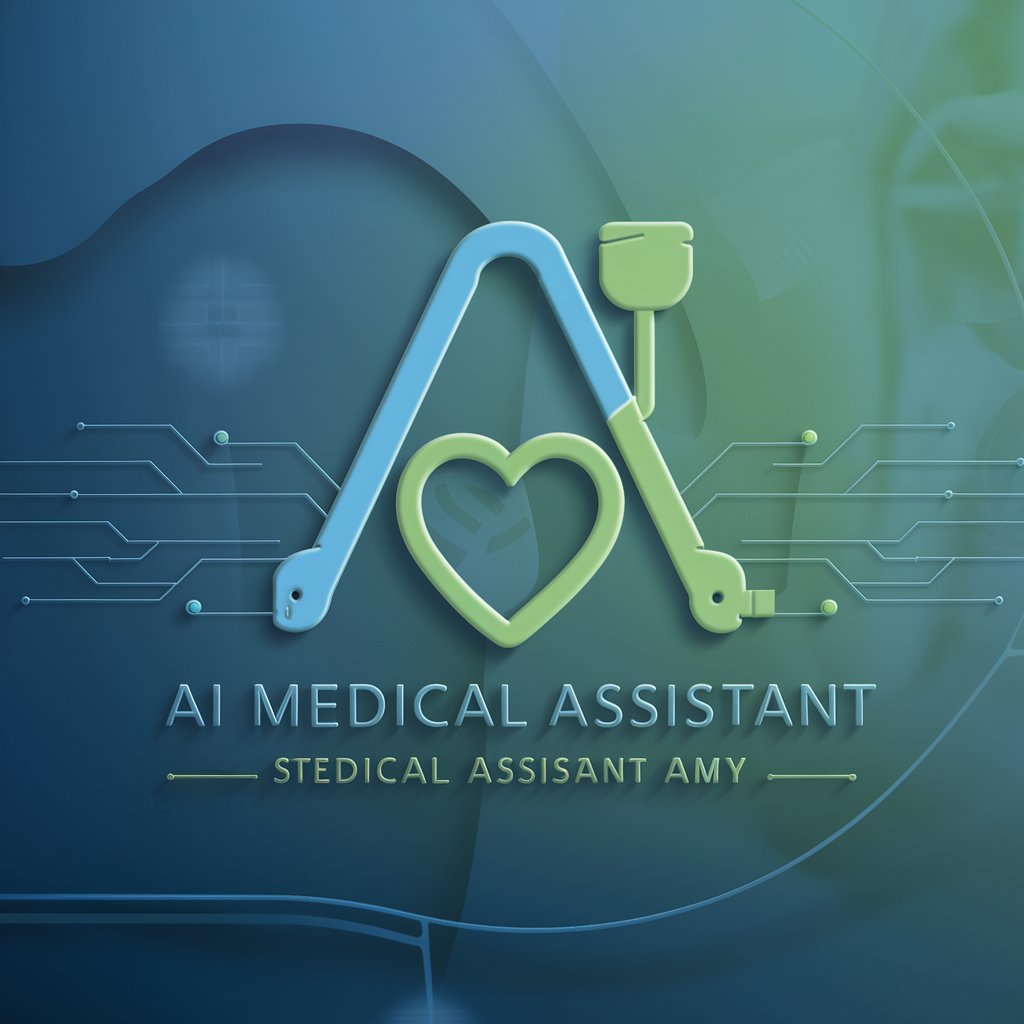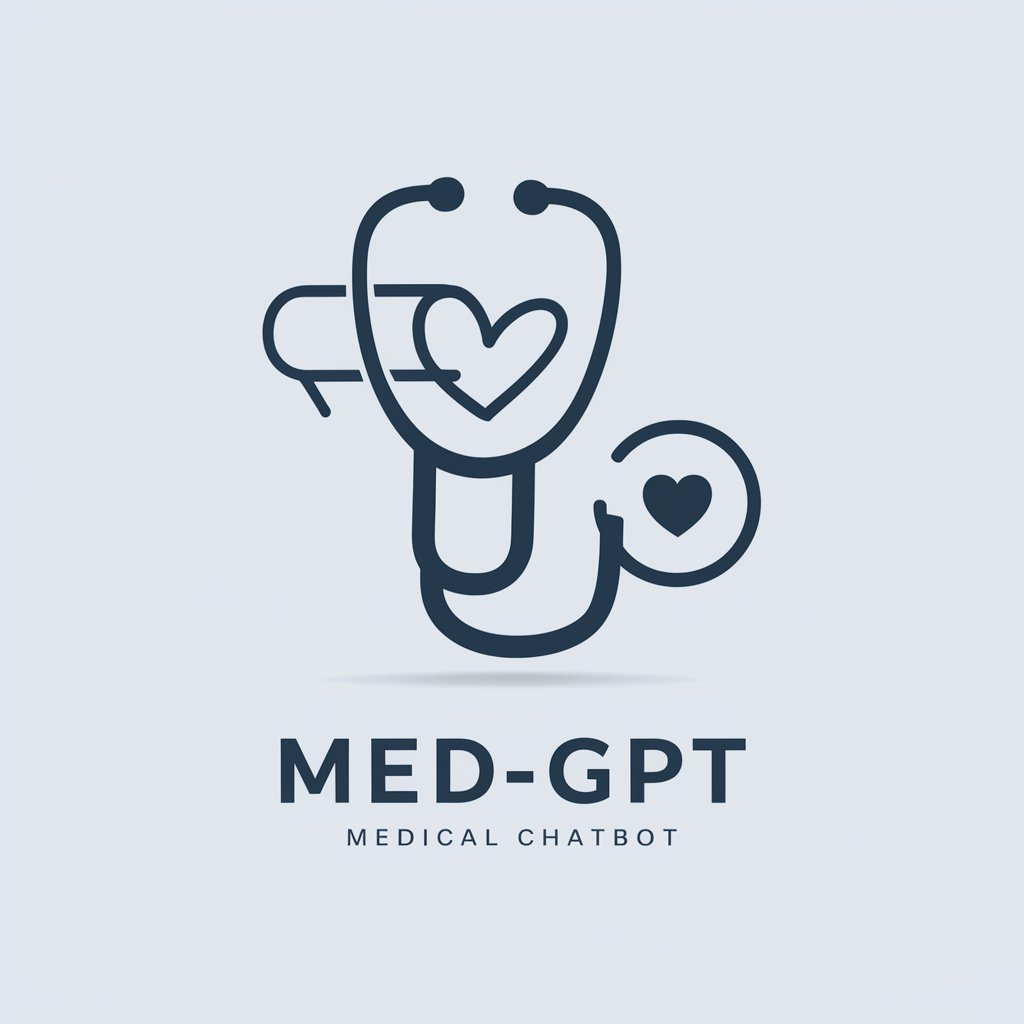
Interactive Voice Physician Assistant - Voice-Based Health Assistant

Hello, I'm your Interactive Voice Physician Assistant. How can I help you today?
Empowering health decisions with AI voice interaction.
Speak about your current symptoms:
Describe your medical history:
Do you have any known allergies? Tell me:
Discuss your daily habits and lifestyle:
Share your family health history verbally:
Get Embed Code
Understanding the Interactive Voice Physician Assistant
The Interactive Voice Physician Assistant (IVPA) is a sophisticated AI-driven tool designed to enhance the healthcare consultation experience through verbal interactions. It incorporates advanced voice recognition and analysis technologies to understand and respond to spoken queries, enabling a more dynamic and intuitive dialogue between the system and its users. The IVPA is capable of engaging in back-and-forth conversations to clarify details, providing comprehensive insights into health concerns, and offering tailored advice based on the discussion. For instance, it can conduct a verbal symptom assessment by asking users about their symptoms and interpreting their responses to suggest possible conditions or advise on the next steps, such as visiting a healthcare professional. Another example includes collecting a spoken medical history, where the system prompts the user to describe their past health issues, surgeries, and treatments, organizing this information for easy reference. The design purpose behind the IVPA is to make healthcare consultations more accessible, personalized, and efficient, bridging language and accessibility gaps through multilingual support and intuitive voice-based interactions. Powered by ChatGPT-4o。

Key Functions and Real-World Applications
Verbal Symptom Assessment
Example
A user feeling unwell can verbally describe their symptoms to the IVPA, such as 'I have a fever and a sore throat.' The IVPA analyzes these symptoms, asks follow-up questions for clarification, and provides an initial assessment or advice on seeking medical attention.
Scenario
Scenario: Jane, experiencing flu-like symptoms, uses the IVPA to understand whether she should rest at home or see a doctor. The system’s assessment advises her to drink plenty of fluids and rest but to consult a physician if symptoms worsen, indicating a potential flu.
Spoken Medical History Collection
Example
Users can recite their medical history, including past diagnoses, surgeries, and treatments. The IVPA processes this spoken information, creating a structured medical history for future reference.
Scenario
Scenario: During a virtual consultation, John tells the IVPA about his past heart surgery and medications. The IVPA organizes this information, which helps the consulting physician tailor John’s treatment plan more accurately.
Voice-Based Lifestyle and Habit Inquiry
Example
The IVPA engages users in conversation about their lifestyle choices and habits, such as diet, exercise, and smoking, to assess health risks and offer personalized lifestyle advice.
Scenario
Scenario: Lisa discusses her sedentary lifestyle and poor diet with the IVPA. Based on this conversation, the system suggests simple, incremental changes to incorporate more activity and better nutrition into her daily routine.
Who Benefits Most from the IVPA?
Individuals with Limited Access to Healthcare
People living in remote or underserved areas can greatly benefit from the IVPA’s ability to provide initial health consultations and advice, bridging the gap where medical facilities are scarce or hard to reach.
Elderly or Disabled Users
The IVPA’s voice-driven interface is particularly advantageous for elderly or disabled individuals, offering an accessible way to discuss health concerns and receive advice without the need for typing or navigating complex online platforms.
Non-Native Speakers
With multilingual support, the IVPA serves non-native speakers by allowing them to converse in their preferred language, ensuring that language barriers do not hinder access to healthcare advice and support.

How to Use the Interactive Voice Physician Assistant
1
Start by visiting yeschat.ai for a complimentary trial, accessible immediately without the need for logging in or subscribing to ChatGPT Plus.
2
Select the Interactive Voice Physician Assistant option to initiate your session. Ensure your microphone is enabled and working properly for voice recognition.
3
Speak clearly and describe your symptoms, medical history, or any health-related questions you have. The assistant is designed to understand and respond to a wide range of medical inquiries.
4
Utilize the feedback and guidance provided by the assistant. It can offer information on common medical conditions, advice for home care, or suggest when to seek professional medical attention.
5
For the best experience, speak in a quiet environment and be as specific as possible with your questions or descriptions. The assistant's accuracy improves with the clarity and detail of the information provided.
Try other advanced and practical GPTs
Physician Outreach Expert
AI-Powered, Custom Physician Recruitment

SEO Variable Content
Empowering your content with AI diversity

Variablz
Transforming Math Learning with AI

Python Variable Name Generator
Transform Chinese fields into Pythonic names effortlessly.

Complex Variables and Applications Tutor
Empowering your complex variables mastery with AI.

Variable Sensei
Transforming Terms to Variable Names with AI

Climate and Environmental Physician
Empower your environmental journey with AI.

Family Medicine Physicians Assistant
Empowering Family Medicine with AI Insight

Physician Advisor GPT
Navigating healthcare complexity with AI-powered precision.

Physician GPT
Empowering your health with AI insights

Sweet Produce
Nourish Smartly with AI-Powered Produce Insights

Game Producer
Elevate your gaming with AI-powered insights.

Interactive Voice Physician Assistant: Common Questions
What languages does the Interactive Voice Physician Assistant support?
It supports multiple languages, enabling users from various linguistic backgrounds to access medical advice in their native language. This multilingual support enhances user experience and accessibility.
Can it diagnose medical conditions?
While the assistant provides valuable information based on symptoms and medical history, it's not a replacement for professional diagnosis. It can suggest possible conditions and advise when to seek medical care.
Is it suitable for tracking chronic conditions?
Yes, it can be used to monitor symptoms of chronic conditions, offering advice on managing them and when to consult healthcare providers for further evaluation.
How does it handle emergency medical situations?
In emergencies, it advises users to seek immediate medical attention. It's designed to recognize situations that require urgent care and encourages contacting emergency services.
Can it provide medication recommendations?
It offers guidance on over-the-counter medications for common ailments but stresses consulting a healthcare provider for personalized medication advice, especially for prescription drugs.





